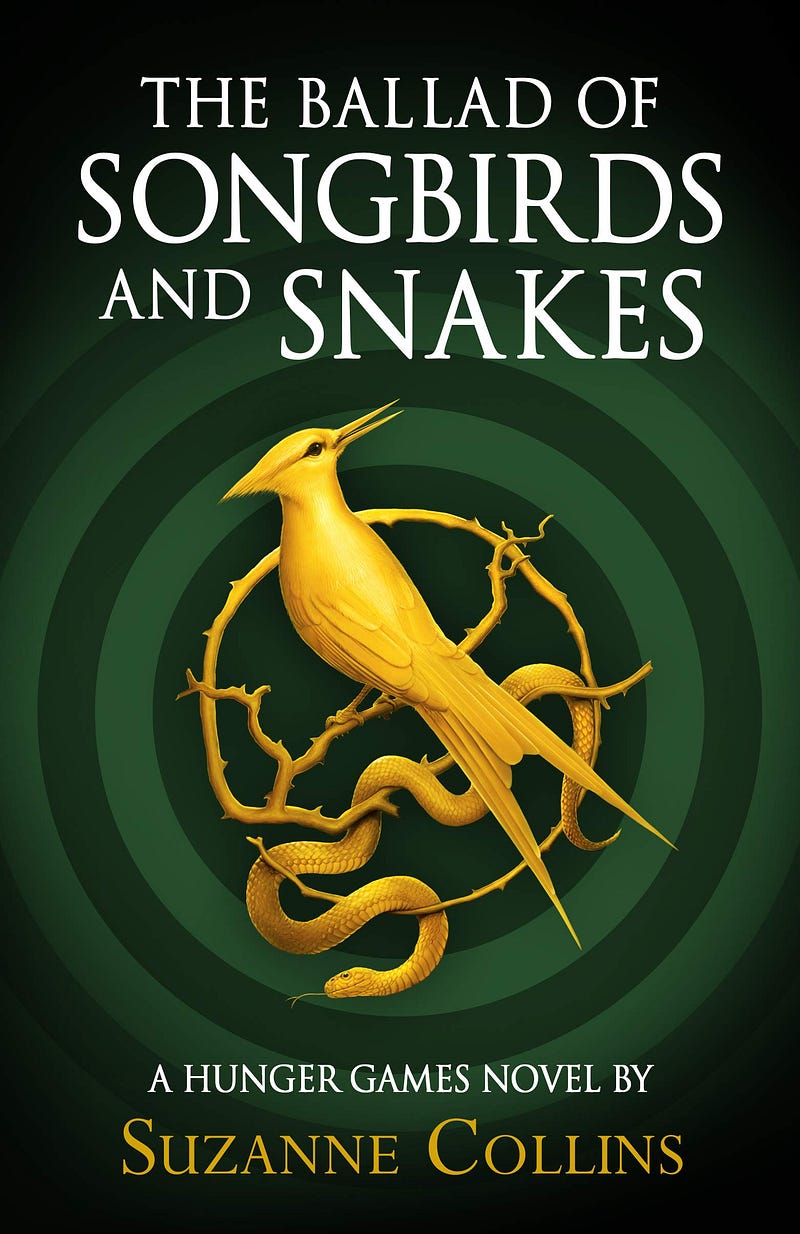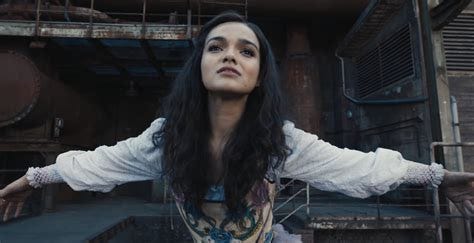Some Ill-defined Musings About “The Ballad Of Songbirds And Snakes”

I just watched the movie adaptation of The Ballad of Songbirds and Snakes, by Suzanne Collins, and I wanted to try to process it a little (this is going to be a jumble of thoughts and not a thorough analysis). It is the prequel to the original Hunger Games trilogy. Instead of Katniss, this story’s protagonist is Coriolanus Snow, the person who would antagonize Katniss Everdeen as President of Panem. He is given the challenge of making the Hunger Games more appealing to viewers and of serving as a mentor to one of the children forced to fight in the arena.
The movie does an exceptional job of portraying the horror of the games and of this world. I actually never saw the final Hunger Games movie because Mockingjay part 1 was too violent for me, and I’m a squeamish person. For that reason, I probably won’t be rewatching this movie. But I appreciate that this movie really tried to push just how wrong and disgusting the games are. The mentors are shaken when they watch their mentees die, and the children themselves are scared and broken. When a weapon is swung or someone jumps at another character, there is a weight conveyed by the sound design that feels almost oppressive. Even the jokes made by Flickerman, the host of the Hunger Games, feel less funny and more abhorrent. It is terrifying seeing someone try to laugh and make light of something so gruesome.
More than the horror, this movie feels like a warning. One of the characters, I believe Dean Highbottom, mentions that people are willing to sacrifice quite a lot for entertainment. That comment seemed to be really on the nose for a lot of what we see in the world today. Presidential candidates wielding chainsaws or organizing a chorus of terrorists to sing the national anthem (the 1/6 Choir)…there’s a lot going on that shouldn’t be okay, yet people are entertained and willing to allow terrible things to happen. Unfortunately, there isn’t enough resistance in Panem at this point. It isn’t until Katniss arrives and the Hunger Games have gone on for the better part of a century that people are reminded of their common humanity and finally end it.
So all of that was done extremely well. The movie really drove home how terrifying this whole scenario is in a way that I don’t think the book was able to do.
I also wanted to talk a little about Lucy Gray. When I first read the book, I enjoyed her character. I thought she was unique. In such a violent story, I wasn’t expecting one of the main characters to be a singer. And the singing is impactful and meaningful. When she sings, she is courageous. Lucy Gray doesn’t want to be in that arena. She doesn’t want to die. The movie really shows just how scared she is and how intimidating she becomes when she sings. She doesn’t become a threat to the capital yet, and I don’t think she inspires resistance in the way Katniss does (Katniss shows a compassion in the arena that Lucy Gray doesn’t), but I think Lucy Gray shows the capital that the people in the districts are more resilient than previously thought. The Hunger Games won’t break them, at least not in their current iteration.

While the movie did an excellent job tying singing to individuality and strength, I think I liked the way the books weaved the songs into the story a little bit better. They felt more impactful and helpful in understanding the characters. The songs tell the stories of the characters and help us better understand them. I was skimming through the book the other day and got to the part where Lucy Gray sings her version of the William Wordsworth poem her name is from, and Snow actually attempts to analyze the poem. He did it very poorly, but I think it was fun seeing him try that. As a fan of the original poem, I think there’s a lot to gain from studying it and the other songs.
The movie certainly showed a lot of the songs, but not quite in the same way as the book. I remember being excited when I heard the first stanza of the Lucy poem in the theater, but then the movie skips to one of the later stanzas. We don’t get to hear the full poem or see much of Snow’s reaction to it. Considering how Lucy Gray Baird’s story mirrors that of the original Lucy Gray, it’s a shame the movie didn’t focus on the poem more. There’s a lot lost in the movie adaptation. The ending fell kind of flat, and the mystery and beauty of the poem doesn’t really come across. Perhaps I’m attaching way too much importance on the poem, but I finished the book feeling more hopeful, whereas the movie left me with a much greater sense of dread.
If you haven’t read the book, I at least recommend you check out the original poem. The Penguin Book of Romantic Poetry edited by Jonathan and Jessica Wordsworth has the original poem as well as four others that they group together as “The Lucy Poems.” Taken together, I think they offer some interesting insights and ideas into what may have happened to Lucy Gray Baird. And considering her relationship to Snow, I think it’s important to know more about her. I may write about this in more detail somewhere else, but I think the Hanging Tree song tells the story about Snow. He killed three people; when he tested into officer training he pushes aside his “love”; Lucy told him to go to the tree so they’d both be free; and finally, he wears a necklace of rope that keeps him tied to Lucy. She disappeared, and he’s haunted by her ghost. In the book, he continues thinking about her long after the events at District 12. It’s keeping him from breathing, from being free. It’s like Luke Skywalker said in The Last Jedi: “Strike me down in anger and I’ll always be with you.” But in the movie, we aren’t given that additional poem, the original Lucy poem. And by cutting short the story of Lucy Gray, the movie comes away with a different feeling.
Again, I’m probably biased because I absolutely adore the original poem. I wish it had been in the movie. I really think it diminishes the movie to not have the poem in there, but I’m sure the movie is still enjoyable for people who have no idea there was a Lucy Gray long before Suzanne Collins decided to write this book. I think I may try to write an actual analysis of Lucy Gray Baird in the context of the original poem, but that’s enough for now. These are just some of my thoughts about the movie.
Oh, I forgot about Sejanus. I think the movie kind of forgot about him too. He’s in it a lot, but I was a little unclear about why he was there. But I’m willing to accept that’s more because of the time constraints of the movie.
Overall, it was a fine movie that did a lot of stuff really well. I just think it missed out on some of the artistry and poetry of the book.
Thanks for reading! I hope you enjoyed the movie and reading through my ramblings about it. I also have a podcast called “Determination, Deliberation, and Dragons,” where my friends and I workshop original stories, analyze books and films, and interview authors. You can find it wherever you get your podcasts.
